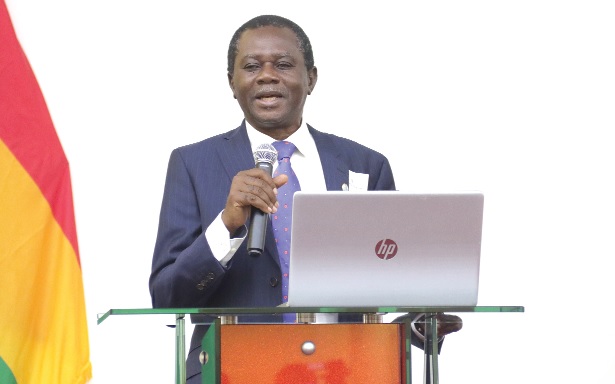A consulant Psychiatrist, Professor Sammy Ohene, has advocated the imposition of taxes on alcohol and cigarettes to help fund the Mental Health Fund.
With the World Health Organisation (WHO) estimating that 10 per cent of the country’s population suffer a form of mental disorder, he said committing the proposed tax to the fund, which he described as empty, would position the country to build better infrastructure with the requisite manpower to deal with mental health issues.
“I know people are tired and complaining about taxation but if you are not tired of all the problems that will arise when we have at least 10 per cent of our population suffering from one form of disorder or the other which affects not just the individual but also the family around him, and if we are conscious of the fact that this leads to loss of productivity and the Gross Domestic Product of our country, then I think we will be sympathetic and not mind too much if we have to pay five pesewas when we buy a bottle of alcohol to put in the Mental Health Fund,” he said.
Lecture
Prof. Ohene, who is also the Chairman of the Faculty of Psychiatry at the Ghana and West Africa Colleges of Physician and Surgeons, was speaking at the maiden lecture on mental health to honour Prof. E.F.B. Forster, a man described by many as the patriarch of psychology in Ghana.
The lecture was jointly organised by the Mental Health Authority, American Chamber-Ghana, and Janssen, Pharmaceutical Companies of Johnson and Johnson with support from the Ghana College of Physicians and Surgeons, and the WHO.
The lecture, which featured a panel discussion, was on the theme: “Ten years of Mental Health Act: Measuring the impact”.
A former Chief Psychiatrist, Prof. Joseph Bediako Asare, was honoured with the lifetime achievement award for his outstanding achievement and contribution to mental health practice and training in the country and beyond.
Education
Prof. Ohene observed that 10 years after passing the Mental Health Act, there still existed forms of human right abuses of persons with mental health disorder in the country.
He, therefore, underscored the need for continuous education of the key stakeholders, particularly the judiciary, the police, and even non-psychiatric doctors about the Mental Health Act.
“Many non-psychiatric doctors are at a loss about what to do when they are faced with a mental health problem that they think must be admitted but do not know how to go about it.”
“It will also teach people not to think or believe that because you think that you are not happy with somebody’s behaviour, you can compel the person to go and take treatment, which should not be so.”
“We should also educate the public on how to recognise symptoms of mental disorders so that prompt treatment which we all know makes a great difference,” Prof. Ohene noted.
Manpower
A former Chief Executive Officer of the Mental Health Authority (MHA), Professor Akwasi Osei, said the country needed more psychiatric doctors.
He said the country had only 65 of such professionals but expressed the hope that in the next there years, 40 more would join.
He called for a massive public education not only in the media but at work, mosque and churches.
SOURCE: graphic online

